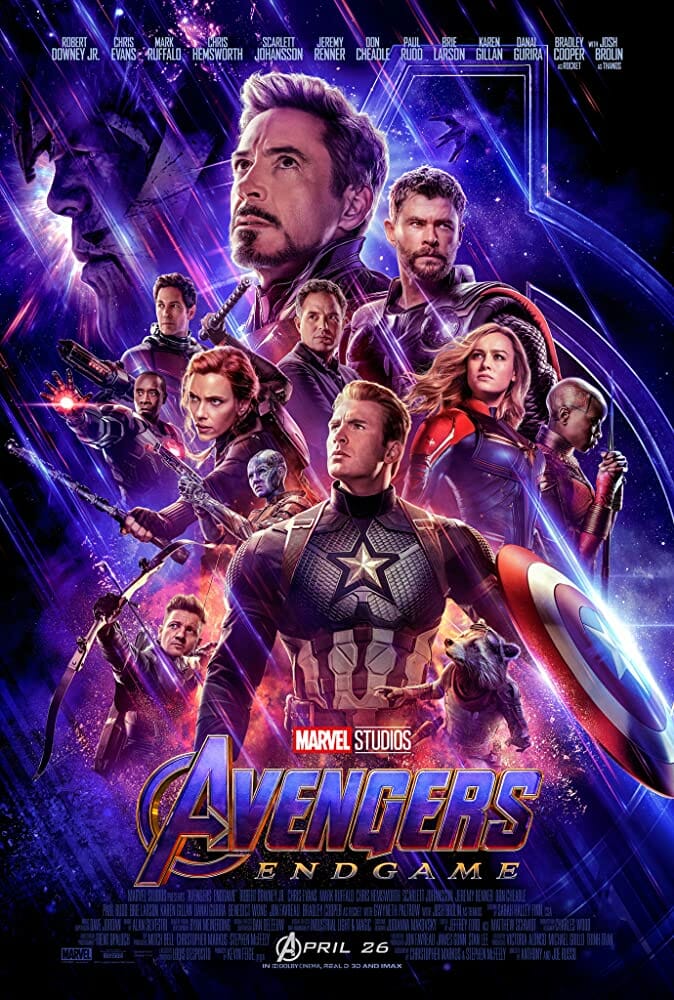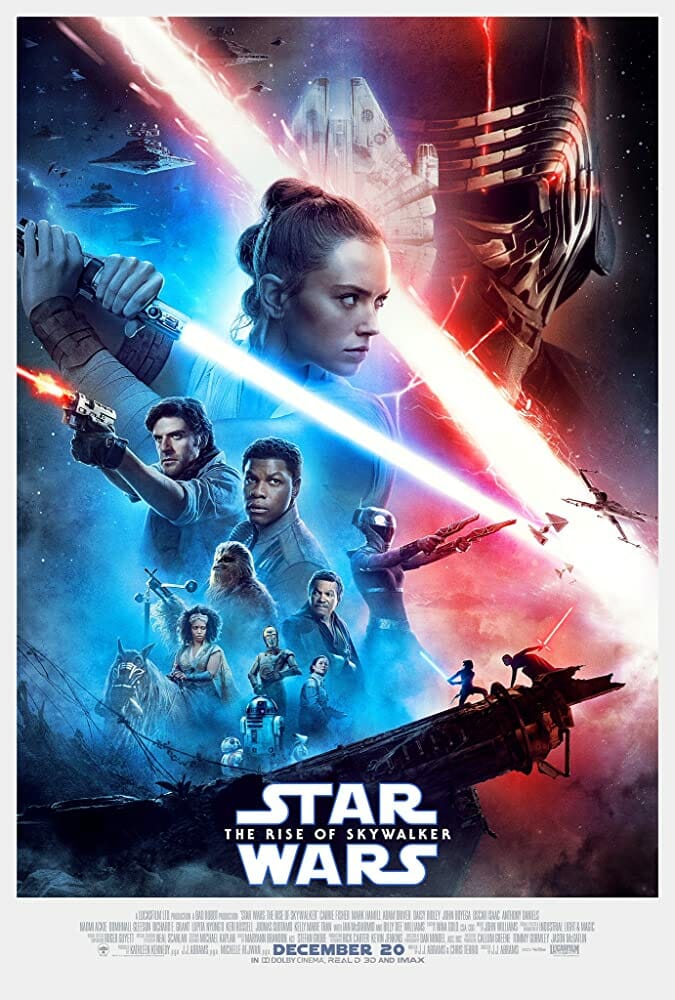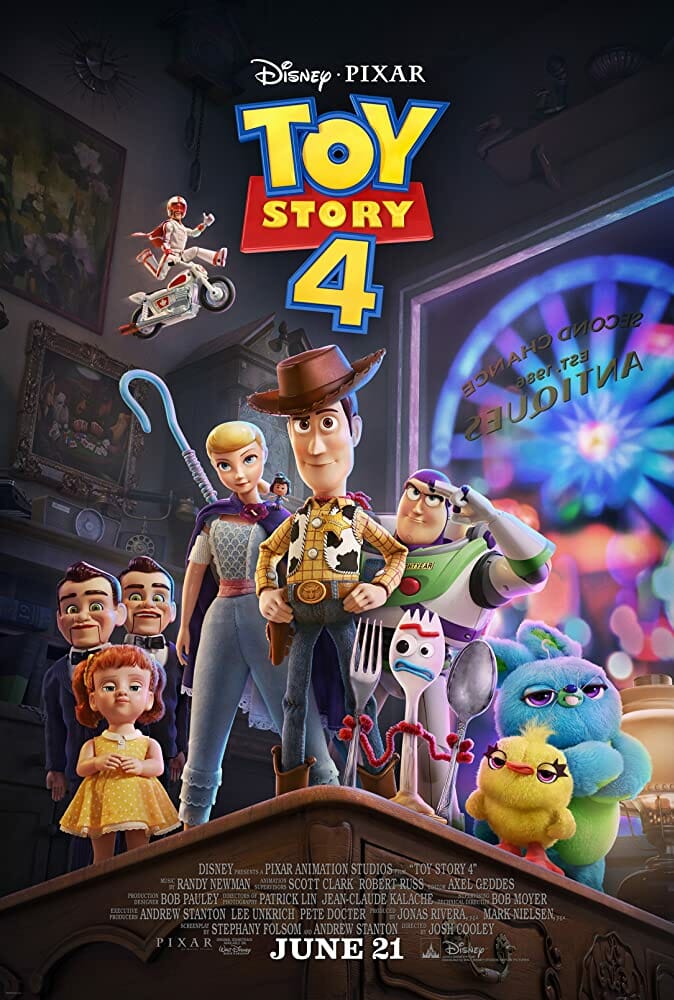One of the largest and most profitable studios in the world, Walt Disney is also the most recognizable, with a massive global brand expanding beyond just films. The company has focused on family entertainment since the release of their first film Snow White in 1937, and is still the most dominant force in that genre at the box office. The company distributes under several imprints including Walt Disney Pictures, Walt Disney Animation Studios, DisneyNature, Pixar animation studios, Lucasfilm, Marvel Studios, and Touchstone Pictures. In March of 2019, the Walt Disney Studios officially acquired 21st Century Fox, along with select other Fox film and television properties in a $71.3 billion dollar deal. When the acquisition was complete, Disney took ownership of several film assets under 21st including 20th Century Fox, 20th Century Fox Animation, Blue Sky Studios, Fox Studios Australia, and Fox Searchlight. In January 2020, Disney renamed the studio from 20th Century Fox to 20th Century Studios, and distributes those films under Walt Disney Studios. Fox Searchlight was renamed to Searchlight Pictures, and operates as an indie distribution unit as a subsidiary of Disney.
Walt Disney Studios has a weak history when it comes to LGBTQ inclusion compared to other studios tracked in this report. Touchstone Pictures has released some LGBTQ-inclusive films over the years including Ed Wood (1994), Sweet Home Alabama (2002), Under the Tuscan Sun (2003), and Kinky Boots (2006). Lucasfilm produced the film Mishima: A Life in Four Chapters, which told the story of gay Japanese writer Yukio Mishima, by combining his autobiography with parts of his fiction novels, which includes his love for another male peer. The film never received an official release in Japan due to protests, and was released in the U.S. under Warner Bros. Some of Disney’s past inclusive films include Delivery Man (2013), Muppets Most Wanted (2014), and Beauty and the Beast (2017). 20th Century’s previous LGBTQ-inclusive releases include The Rocky Horror Picture Show (1975), Making Love (1982), Silkwood (1983), The Object of My Affection (1998), The Family Stone (2005), Independence Day: Resurgence (2016), and most recently Love, Simon (2018).
Avengers: Endgame
Widest Theatrical Release: 4662 theaters
Vito Russo Test: Fail
Avengers: Endgame was the 22nd movie in the Marvel Cinematic Universe (MCU), and broke many box office records including becoming the highest-grossing film of all time worldwide. In one small scene, Captain America is leading a group therapy session for survivors left behind after the villain, Thanos, had destroyed half of all life. One member of the group, credited as “Grieving Man,” played in a brief cameo by co-director Joe Russo, tells the group about the new man he is dating and trying to move forward in this new world after losing his partner. While the scene itself with no outside context is a nice moment of inclusion, it is ultimately another blink-and-you-might-miss-it moment, inconsequential to the plot, with the character on screen for less than one minute.
The film’s directors spoke to press about the moment ahead of the film’s release with Russo saying, “It was important to us as we did four of these films, we wanted a gay character somewhere in them. […] We wanted it to be casual, with the fact that the character is gay tied into the fabric of the storytelling and representing what everyday life is. We’re trying to represent everyone in everyday life.” The backlash came from fans frustrated by such little screen time and the lack of meaningful LGBTQ inclusion in the MCU, including the erasure of queer characters’ identities in Thor: Ragnarok and Black Panther.
The MCU films are among the most anticipated and most successful movies that are currently in production, with all three 2019 MCU releases crossing the billion dollar mark at the worldwide box office. That kind of repeated success gives them the power to set new cultural standards, and to inspire other companies to follow its lead. Disney and Marvel should leverage those opportunities to be a global leader by featuring queer heroes in larger roles and exploring the depth and dimension of their lives in the upcoming MCU films The Eternals, Thor: Love and Thunder, and beyond.
Frozen 2
Widest Theatrical Release: 4440 theaters
Vito Russo Test: Fail
The sequel to 2013’s Frozen sees the return of Elsa, a queen with the power to form and manipulate ice and snow. Elsa is one of the only Disney Princesses with no love interest, and she has often been read as gay by fans. Her story hinges on themes often used in queer stories, including feelings of being an outsider, and having to suppress and hide a characteristic she was born with to fit into the wider world. The adoption of Elsa as a queer character has led to worldwide trending calls to #GiveElsaAGirlfriend spurring press coverage and questions to the film’s directors. Unfortunately, this story has yet to be made canon, and we hope to see the film develop this story if there is a third Frozen movie. While some press outlets have counted the villager Oaken as gay based on a scene from the first film, he does return in a small role in this film. GLAAD did not view the content of the film as substantial enough to confirm Oaken as gay, and he is thus not included in this tally.
Star Wars: The Rise of Skywalker
 Widest Theatrical Release: 4406 theaters
Widest Theatrical Release: 4406 theaters
Vito Russo Test: Fail
The Rise of Skywalker is the third installment in the Star Wars sequel trilogy and the final episode of the nine-part Skywalker saga. Director and co-writer J.J. Abrams told press ahead of the release, “In the case of the LGBTQ community, it was important to me that people who go to see this movie feel that they’re being represented in the film,” teasing that there would be a substantial LGBTQ character in the film. Many fans hoped for a relationship between lead characters Finn and Poe, which was supported in press by actors John Boyega and Oscar Isaac. Unfortunately, the representation turned out to be a split second blink-and-you’ll-miss-it kiss between two women Resistance fighters as the camera pans over them during the climactic celebration of the Resistance victory.
This small moment is noteworthy for the world of Star Wars where there has not been any LGBTQ inclusion across the decades of films and even for Disney, which has not had a great history when it comes to LGBTQ characters. But in the larger world, this kind of moment feels behind the times when compared to the strides that TV and indie film have made. While the Skywalker saga has wrapped, there are already more Star Wars films announced including a new trilogy as well as several standalone films. The fervor of fans over just the possibility of LGBTQ representation in this franchise shows how great the appetite for LGBTQ characters and stories is. The new films should engage this audience and introduce original LGBTQ characters, and leverage the multiple LGBTQ characters who already exist in the Star Wars comics and books.
Stuber
 Widest Theatrical Release: 3050 theaters
Widest Theatrical Release: 3050 theaters
Vito Russo Test: Fail
This action-comedy follows Los Angeles cop Vic and his Uber driver Stu as they team up to hunt down a criminal. One lead that Vic follows takes him to a male strip club, including a seconds-long appearance by a gay man mistaking Vic for a dancer. In another scene, Stu offers a non-violent alternative to torture, taking a suspect’s phone and tweeting from his account how much he loves Ryan Gosling. At one point, Stu says he is married to Vic to avoid being targeted, and later, Stu’s boss makes jokes implying that Vic is a sex worker Stu hired. It is disappointing that the film attempts to make jokes about LGBTQ people while also essentially excluding them from the story.
Toy Story 4
 Widest Theatrical Release: 4575 theaters
Widest Theatrical Release: 4575 theaters
Vito Russo Test: Fail
In an early scene in Toy Story 4, audiences see parents of various children dropping their kids off for their first day of school. This includes two women who have their arms around each other before they hug their child goodbye. Though the moment with the two moms was brief, it still caught the attention of anti-LGBTQ group One Million Moms, who called for a boycott of Toy Story 4. Their paltry attempts were ineffective, given thatToy Story 4 made over a billion dollars worldwide, became the third highest grossing film of 2019, and won the Oscar for Best Animated Feature. The success of a film with even a small inclusive moment like this should be a stepping-stone to animated and family films featuring more significant LGBTQ characters.
OPPORTUNITIES AHEAD
After acquiring 20th Century, there are greater opportunities for Disney to distribute more diverse LGBTQ-inclusive films. The upcoming musical feature Everybody’s Talking About Jamie is based on the stage musical of the same name inspired by the true story of a gay 16-year-old who overcomes prejudice and bullying to fulfill his dream to become a drag queen. The film was recently delayed to early 2021 per IMDb. Another project in development is the graphic novel Nimona at Blue Sky Studios, this story from out writer Noelle Stevenson includes a romance between the two leading men: the villain Ballister Blackheart and hero Goldenloin. It is currently scheduled for release on January 14, 2022. With the acquisition of 20th Century, Disney also inherited a film adaptation of the GLAAD Media Award-nominated comic, Goldie Vance, about a teenage girl who solves mysteries at the resort she lives in with the help of her friends and girlfriend, which has Rashida Jones attached to write and direct with Kerry Washington producing. There has been no news announced on the film since 2017, but GLAAD does hope to see Disney move forward with the project.
Also in the works is the X-Men spinoff The New Mutants, a genre-crossing teen horror super hero film, which features a queer romance between two of the main characters, Rahne/Wolfsbane who can turn into a wolf and Dani who can create illusions based on people’s deepest fears and desires. While doing press for the film, which was scheduled for an April 3 release before being pushed to August 28 due to COVID-19, director Josh Boone described the girls’ romantic relationship as “the spine and focus” of the film’s character development for the couple.
Disney’s MCU will be introducing its first gay hero when The Eternals hits theaters next year, pushed back from November 2020 to February 12, 2021 due to COVID-19. Out actor Haaz Sleiman has confirmed in press that he will portray the husband of the hero Phastos, a member of the immortal Eternals team who team up to save humanity, and further confirmed the film will include the couple’s son. Another upcoming MCU film, Thor: Love and Thunder, is set to finally portray Valkyrie’s queerness on screen. Valkyrie first appeared in 2017’s Thor: Ragnarok, and though out actress Tessa Thompson had said that she played the character as queer, this was not made canon in the film itself. Director Taika Waititi confirmed that a scene, which would have established Valkyrie’s queer identity, was cut from the film. Waititi returns to write and direct Love and Thunder, set for release February 11, 2022, and Thompson announced at San Diego Comic-Con in 2019 that Valkyrie as the recently crowned King of Asgard “needs to find her queen. That will be the first order of business.”
Other upcoming Disney projects include Jungle Cruise, an adventure film set in the early 20th century based on the popular theme park ride, starring Emily Blunt, Dwayne Johnson and Jack Whitehall. Whitehall will play McGregor, the gay brother of Emily Blunt’s character, as they head into the jungle on a quest to find the Tree of Life. The film was pushed from this summer to July 30, 2021 because of COVID-19.
Searchlight Pictures, created in 1994, was a subsidiary of 20th Century Fox and known as Fox Searchlight until the Disney acquisition in 2019. The imprint is now known as Searchlight Pictures and still specializes in the release and distribution of independent and foreign films in the United States, as well as horror films and dramedies. Searchlight Pictures has been responsible for the release of several high-profile LGBTQ-inclusive films, including Boys Don’t Cry (1999), Kinsey (2004), Battle of the Sexes, The Shape of Water (2017), and Can You Ever Forgive Me (2018).
Jojo Rabbit
Widest Theatrical Release: 1173 theaters
This satirical film follows a Nazi boy, Jojo, who has a buffoonish version of Hitler as an imaginary friend; he begins to question his beliefs when he develops a friendship and crush on the Jewish girl staying in his home. Throughout the film, Jojo is tasked to work with Captain Klenzendorf, an officer who runs a Nazi Youth camp and then takes over as Jojo’s mentor after Klenzendorf is discharged from the camp, alongside the man’s second-in-command, Finkel. While Sam Rockwell (who portrayed Klenzendorf) has said in press the character was gay, the actual content referenced in the film – a lingering look between Klenzendorf and Finkel, and the bright, fringed uniforms they show up in for the final battle – was coded subtext at best and not enough to count either man as gay.


 Widest Theatrical Release: 4406 theaters
Widest Theatrical Release: 4406 theaters Widest Theatrical Release: 3050 theaters
Widest Theatrical Release: 3050 theaters Widest Theatrical Release: 4575 theaters
Widest Theatrical Release: 4575 theaters










